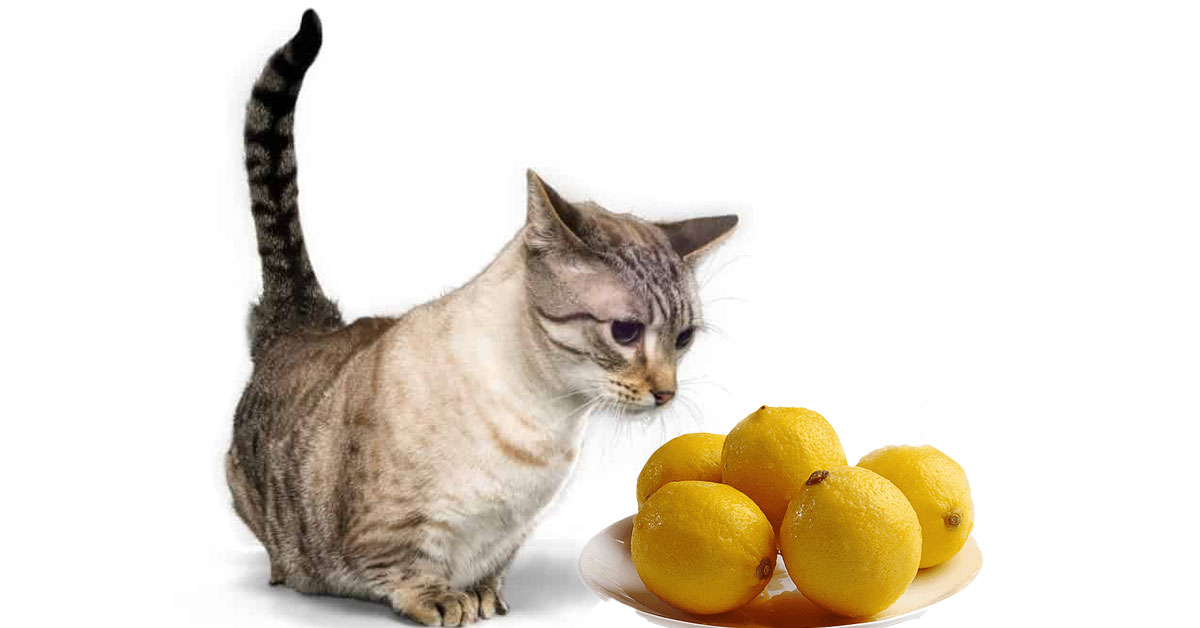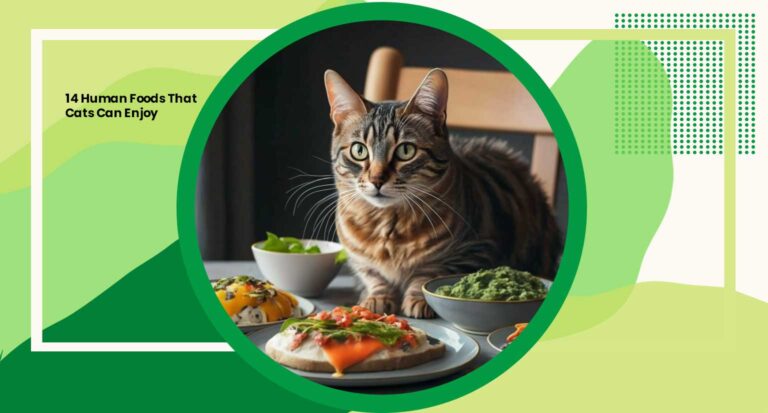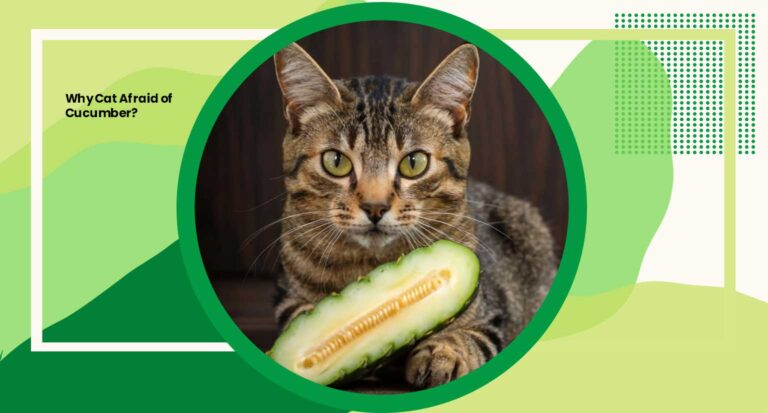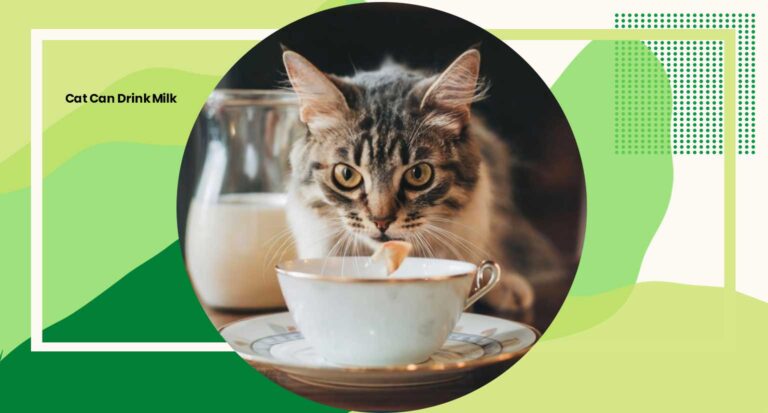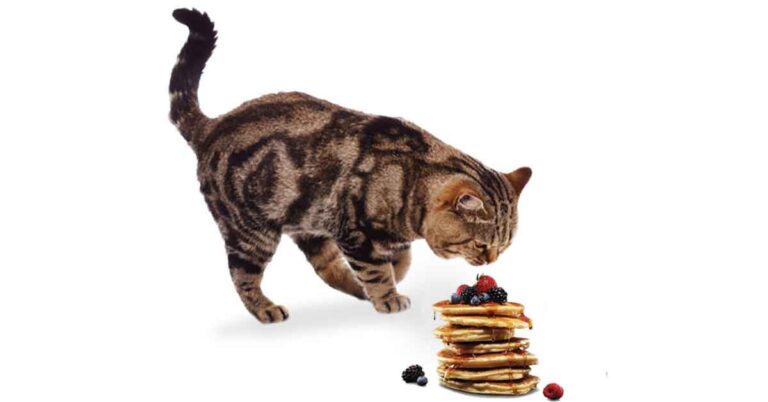Can Cats Eat Lemon?
As a diligent cat owner, you’re probably careful about what your feline friend eats. After all, not all human foods are safe for our furry companions. A common question that many pet owners have is, “Can cats eat lemon?” The short answer is no. Lemons, like all citrus fruits, contain toxic compounds that can cause serious health issues in cats. However, the full explanation requires a closer look at the key aspects of this topic. We’ll delve into the risks associated with cats consuming lemon and explore why it’s not a good idea. This will be a comprehensive guide to help you understand the reasons behind this prohibition and how you can ensure your cat’s safety.
Why Cats and Citrus Fruits Don’t Mix?
Cats are obligate carnivores, meaning their nutritional needs are largely met through a meat-based diet. Citrus fruits like lemons aren’t a natural part of a cat’s diet, and their bodies aren’t designed to digest such foods. However, the problems go beyond just a mismatch in dietary needs.
The essential oils and citric acid found in citrus fruits, including lemons, contain toxic compounds that can harm your cat’s body. These substances can cause symptoms of lemon poisoning such as gastrointestinal distress, skin irritation, and in severe cases, even liver failure.
Furthermore, the strong smell of lemons and other citrus scents can be overwhelming for your cat. Cats have a much more sensitive sense of smell compared to humans, and the intense citrusy scent can cause discomfort or distress. Thus, it’s not only the consumption but also the mere smell of lemons that can be problematic for your feline friend.
Therefore, as a cat parent, it’s crucial to err on the side of caution and keep all citrus fruits, including lemons, out of your cat’s reach.
Toxic Compounds in Lemons
The main ingredients in lemons that pose a threat to cats are the essential oils and the citric acid. These are toxic substances not only in the lemon fruit but also in the lemon peels and even the lemon tree.
The essential oils, specifically limonene and linalool, are concentrated in the skin of the lemon. Even small amounts of these compounds can lead to skin burns, excessive drooling, and stomach upset. Additionally, if the oils come into contact with your cat’s fur, they might ingest them while grooming, causing internal harm.
Citric acid, on the other hand, is found throughout the fruit, and can lead to acidic changes in your cat’s digestive system. This can cause gastrointestinal upset and in extreme cases, even liver failure.
In essence, every part of a lemon – from the skin to the internal part of the fruit – contains toxic chemicals that are harmful to cats. Hence, it is advised to avoid feeding your cat with any part or form of lemon, including lemon water or lemon cake.
Essential Oils and Cat’s Senses
Essential oils are widely known for their strong, potent smells, and lemons are no exception. This citrusy scent, while refreshing to humans, can be overwhelming and even distressing for cats. The reason lies in your feline friend’s heightened sense of smell, which is far superior to ours.
Additionally, exposure to the essential oils in lemons and other citrus fruits can result in skin irritation or even skin burns if they come into contact with your cat’s skin or fur. This can cause discomfort, distress, and potential behavioral changes as your cat attempts to avoid the source of its discomfort.
Moreover, cats are curious creatures. If a lemon, lemon peel, or a product containing lemon oil is within their reach, they may attempt to lick or chew it, leading to potential ingestion of toxic substances. Therefore, even the use of cleaning products or dog shampoos containing lemon or other citrus scents should be approached with caution around cats.
Effects of Lemon Consumption on Cats
When cats ingest lemon or come into contact with lemon oil, their reactions can range from mild discomfort to severe health issues. It’s crucial to recognize the symptoms of lemon poisoning and seek immediate veterinary attention if your cat consumes this citrus fruit.
Even tiny amounts of lemon can lead to symptoms such as excessive drooling, vomiting, diarrhea, and lack of appetite. More severe symptoms include cold limbs, low blood pressure, and in extreme cases, liver failure. These symptoms result from the toxic compounds in lemons, including the essential oils and citric acid, which can disrupt your cat’s bodily functions and cause distress.
In addition to the immediate physical symptoms, the strong smell of lemon can also cause behavioral changes in your cat. They may show signs of distress, anxiety, or avoidance behaviors, which can disrupt their overall well-being.
In the worst-case scenario, excessive amounts of lemon can lead to severe gastrointestinal problems and even liver failure, necessitating immediate medical attention. Therefore, it’s essential to avoid exposing your cat to lemons and other citrus fruits, either directly or indirectly, to prevent these harmful effects.
Skin Irritation and Burns
Cats’ skin is more sensitive than humans’, and the essential oils found in lemons can cause severe irritation if they come into contact with your cat’s fur or skin. This can result in discomfort, itching, and even skin burns in extreme cases. Plus, cats are fastidious groomers, and they might ingest these harmful oils during their grooming process, leading to internal damage.
If your cat’s skin comes into contact with lemon oil, monitor them for any signs of distress, such as excessive scratching, skin redness, or patches of fur loss. If you notice any of these symptoms, it’s essential to seek veterinary care promptly. A professional can conduct a complete blood count and other blood work to assess the situation accurately and provide appropriate supportive care.
As a proactive measure, consider keeping lemons, lemon peels, and any products containing citrus oils, such as certain cleaning products or dog shampoos, out of your cat’s reach. Remember, prevention is always better than cure.
Digestive System Issues
Ingesting lemon can wreak havoc on your cat’s digestive system. The citric acid in lemons can cause a sharp increase in the acidity of your cat’s stomach, leading to symptoms of gastrointestinal distress like vomiting, diarrhea, and lack of appetite. These symptoms might start as mild discomfort but can quickly escalate, especially if your cat consumes a large quantity of lemon.
In more severe cases, your cat might suffer from gastrointestinal upset, which could present as abdominal pain, bloating, and even blood in their stool. This can lead to dehydration and require immediate veterinary attention.
In the most extreme cases, the ingestion of excessive amounts of lemon can result in liver failure due to the toxic compounds in the fruit. Signs of liver failure include lethargy, weight loss, jaundice (a yellowish coloration of the eyes and skin), and changes in urination and thirst. If you notice any of these severe symptoms, contact your vet immediately for emergency care.
Keeping lemons and all citrus fruits out of your cat’s reach is the best way to prevent these digestive issues. Ensure your cat’s diet is balanced and appropriate for their nutritional needs, and avoid feeding them any human foods without first checking their safety for cats.
Low Blood Pressure and Other Health Risks
While gastrointestinal distress and skin irritation are the more immediate effects of lemon ingestion, lemons can also cause other serious health issues in cats. One of these is a drop in blood pressure, also known as hypotension. The toxic compounds in lemons can interfere with your cat’s cardiovascular function, leading to symptoms such as lethargy, weakness, and cold limbs. Low blood pressure in cats requires immediate veterinary attention to avoid further complications.
Other potential risks include neurological issues. Severe cases of lemon poisoning can cause tremors, seizures, and even coma. This is due to the effect of the toxic chemicals on the central nervous system. These symptoms are considered a medical emergency and need prompt intervention.
Finally, excessive consumption of lemon can lead to liver failure in cats. The liver is responsible for detoxifying harmful substances, but it can become overwhelmed by the toxic compounds in lemons, leading to damage and possible failure. Symptoms of liver failure include jaundice, lack of appetite, and significant changes in behavior and should be addressed immediately by a vet.
In summary, the health risks associated with lemon ingestion in cats are numerous and serious. The best prevention is to ensure your cat never has access to lemons or any citrus fruit, whether in the form of fresh fruit, peels, or products containing lemon oil or extracts.
How Much Lemon is Too Much?
While it’s understandable to wonder about the threshold of toxicity, the reality is that there is no safe amount of lemon for cats. Even small amounts can lead to skin irritation, gastrointestinal distress, and behavioral changes. Large quantities can cause severe health issues such as low blood pressure, neurological issues, and liver failure.
It’s crucial to note that not only the lemon fruit itself but also any part of the lemon tree or products containing lemon extracts or essential oils pose a risk. That’s why even a small amount of lemon juice, a slice of lemon, or a product containing lemon oil should be kept away from your cat.
As a cat owner, it’s your responsibility to ensure that your cat doesn’t have access to any amount of lemon or other citrus fruits. Prevention is the key to avoiding any potential health risks associated with lemon ingestion.
What Happens with Small Amounts?
Even small amounts of lemon can cause discomfort and distress in cats. The strong smell alone can be overwhelming, leading to changes in behavior as your cat tries to avoid the citrusy scent. If your cat comes into contact with a small amount of lemon juice or oil, they may experience skin irritation, excessive drooling, or even vomiting.
Additionally, due to their grooming habits, cats may ingest the toxic compounds after licking their fur, leading to gastrointestinal problems like diarrhea or upset stomach. In some cases, your cat may show signs of a lack of appetite, which is another symptom of discomfort and potential distress.
Remember, the most important thing is to prevent any consumption or exposure to lemons. It’s always better to be on the safe side, as cats are quite sensitive to the toxic compounds found in lemons and other citrus fruits.
Dangers of Large Quantities
While even tiny amounts of lemon can be harmful to cats, the consumption of large quantities poses even greater risks. In these cases, the toxic compounds in lemons can lead to severe health problems, including neurological issues, low blood pressure, and even liver failure.
Neurological symptoms may include tremors, disorientation, or even seizures. These are signs that your cat’s nervous system has been affected and immediate medical intervention is necessary.
If a cat’s blood pressure drops significantly due to lemon ingestion, it might display symptoms like lethargy, weakness, and cold limbs. This condition can be life-threatening and requires emergency veterinary care.
Liver failure, while less common, is a possible outcome in extreme cases. The liver plays a crucial role in detoxifying the body, and the toxic compounds found in lemons can overwhelm and damage it. Signs of liver failure include jaundice, sudden weight loss, and behavioral changes.
These potential dangers underline the importance of keeping lemons and all citrus fruits well out of your cat’s reach. Regardless of the amount, it’s clear that the risks associated with lemon consumption far outweigh any potential benefits for your feline friend.
Cats and Lemon-Related Products
While we’ve focused mainly on the risks associated with the direct consumption of lemons, it’s important to note that lemon-related products can be equally harmful to cats. Many products, from cleaning solutions to certain pet products, may contain lemon oil or extracts, which can pose risks for your cat.
Just as with direct exposure to the fruit, cats can experience skin irritation or digestive issues from contact with these products. Plus, the strong citrus scent can be distressing for them. Therefore, cat parents should be mindful of the products they use around their home and pets.
Cleaning Products
Many household cleaning products contain citrus oils for their fresh scent and powerful cleaning properties. However, these products can be dangerous if your cat comes into contact with them. Not only can the strong smell of lemons be overwhelming for your cat’s keen sense of smell, but physical contact with these products can also lead to skin irritation or burns.
If ingested, which can happen if your cat licks their fur after coming into contact with the product, these cleaning solutions can cause severe gastrointestinal upset. This highlights the importance of keeping such products out of your cat’s reach and ensuring they do not come into contact with surfaces freshly cleaned with citrus-based products.
Always remember to read the labels of your cleaning products and opt for cat-friendly alternatives whenever possible. Your cat’s health and well-being should be the top priority in your choice of cleaning products.
Feline Grooming Products
While it might seem counterintuitive, some pet grooming products, including shampoos and sprays, contain citrus extracts. While these products are usually safe for dogs, they can be harmful to cats due to their sensitivity to citrus compounds.
The use of such products can lead to skin irritation or burns, especially if used in large quantities or over a prolonged period. If ingested during grooming, these products can also cause gastrointestinal distress. Therefore, it’s crucial to check the ingredients of any grooming products you use on your cat.
If a grooming product causes any adverse reaction in your cat, like excessive scratching, redness, or digestive upset, stop using it immediately and consult your vet. They can recommend safe, cat-friendly alternatives that won’t harm your cat’s health.
As a rule of thumb, always choose products specifically formulated for cats. These products have been developed with your cat’s unique needs and sensitivities in mind, ensuring they are safe to use.
Lemon-Infused Foods
As a cat parent, it’s natural to want to share some of your foods with your furry friend. However, it’s important to remember that not all human foods are safe for cats. This is especially true for foods infused with lemon or other citrus fruits.
Even small amounts of lemon-infused food can lead to symptoms like gastrointestinal distress, excessive drooling, or behavioral changes. These foods not only contain the citric acid and essential oils that are harmful to cats but also often include other ingredients that may be unsafe.
For instance, a small amount of lemon pepper tuna may seem harmless, but it can cause a stomach upset or worse symptoms. Similarly, lemon cake, despite being cooked and sweetened, still contains the harmful compounds found in lemons and can be harmful to your cat.
It’s always a good idea to consult with your vet before introducing any new foods into your cat’s diet. Stick to cat-specific foods to ensure that your feline friend gets all the nutrients they need without the risk of exposure to potentially harmful substances.
What to Do If Your Cat Eats Lemon?
If you suspect that your cat has ingested lemon or a lemon-infused product, it’s essential to act quickly. Early signs of lemon toxicity in cats can include excessive drooling, vomiting, diarrhea, and changes in behavior. If you notice these or any other unusual symptoms in your cat, you should contact your vet immediately.
While it can be alarming to realize your cat has ingested a toxic substance, try to remain calm and provide as much information as possible to your vet. Details like what part of the lemon your cat consumed, how much they ingested, and when the ingestion occurred can be helpful.
Remember, every minute counts in such cases, and the sooner you get your cat professional help, the better their chances of a full recovery.
Recognizing Symptoms
Recognizing the signs of lemon poisoning in your cat is crucial for getting them the help they need promptly. Early symptoms can include behavioral changes such as restlessness or agitation due to the strong smell of lemons, excessive drooling, and a lack of appetite. These signs indicate that your cat may be experiencing discomfort or distress.
If your cat has consumed a larger quantity of lemon or a product containing lemon oil, more severe symptoms may occur. These can include vomiting, diarrhea, signs of pain in the abdomen, skin irritation, low blood pressure (evidenced by weakness or lethargy), and even neurological signs like tremors or seizures.
Take note of any unusual behavior or signs of distress in your cat and report these to your vet. Quick action can make all the difference in treating lemon toxicity.
Immediate Actions to Take
If your cat ingests lemon or a lemon-related product, the first and most crucial step is to remove any remaining lemon or product from your cat’s reach to prevent further ingestion. If your cat’s skin or fur has come into contact with lemon juice or oil, wash the area with warm water to minimize further irritation or absorption of toxic compounds.
Do not attempt to induce vomiting at home. While this might seem like a helpful step, it can sometimes cause more harm than good, leading to aspiration pneumonia or other complications.
Once you’ve removed the source of exposure, contact your veterinarian immediately. Describe the situation accurately, including the type and amount of exposure, as well as any symptoms your cat is displaying. This information will help your vet assess the severity of the situation and provide appropriate advice.
In severe cases, your vet may recommend bringing your cat in for examination and treatment, which could include gastric lavage (stomach pumping), administration of activated charcoal to absorb toxins, and supportive care like fluids and medication to manage symptoms. It’s important to follow your vet’s advice closely for the best possible outcome.
Veterinary Treatment Options
If your cat has ingested a large quantity of lemon or is showing severe symptoms of lemon toxicity, your vet may recommend several treatment options. The goal of these treatments is to remove the toxic compounds from your cat’s body and manage any symptoms to prevent further complications.
One common treatment is gastric lavage, or stomach pumping, which helps to remove any remaining lemon or lemon-containing product from your cat’s stomach. This procedure must be done under anesthesia, and it is typically reserved for severe cases due to its invasive nature.
Your vet may also administer activated charcoal, a substance that binds to toxic compounds in the stomach and intestines, preventing them from being absorbed into the body. This can help to minimize the effects of the toxins.
Blood work, including a complete blood count and blood chemistry panel, may be necessary to assess your cat’s overall health and check for signs of organ damage. Depending on the results, your vet may recommend additional treatments or medications to support your cat’s recovery.
Throughout the treatment process, your vet will closely monitor your cat’s symptoms and vital signs. They may provide supportive care, including fluids to prevent dehydration and medications to manage symptoms such as vomiting or diarrhea.
While dealing with lemon toxicity can be distressing, it’s important to remember that with prompt and appropriate veterinary care, many cats make a good recovery.
Conclusion
While the scent of lemon may be pleasant and refreshing to us, the same cannot be said for our feline friends. The compounds found in lemons and other citrus fruits are toxic to cats, leading to skin irritation, digestive issues, and even severe health problems like low blood pressure and liver failure. Even small amounts of lemon can be harmful, so it’s essential to keep all citrus fruits and lemon-containing products well out of your cat’s reach.
If you suspect your cat has ingested lemon, act quickly. Remove any remaining lemon or lemon-containing product from your cat’s environment, contact your vet immediately, and monitor your cat closely for signs of lemon toxicity. With swift action and appropriate veterinary care, your cat can recover from lemon ingestion.
As a cat owner, the safety and well-being of your pet are in your hands. Always err on the side of caution when it comes to your cat’s diet and the products you use around them. When in doubt, seek the advice of a veterinary professional. After all, it’s better to be safe than sorry when it comes to the health of your furry friend.
Related Articles:

